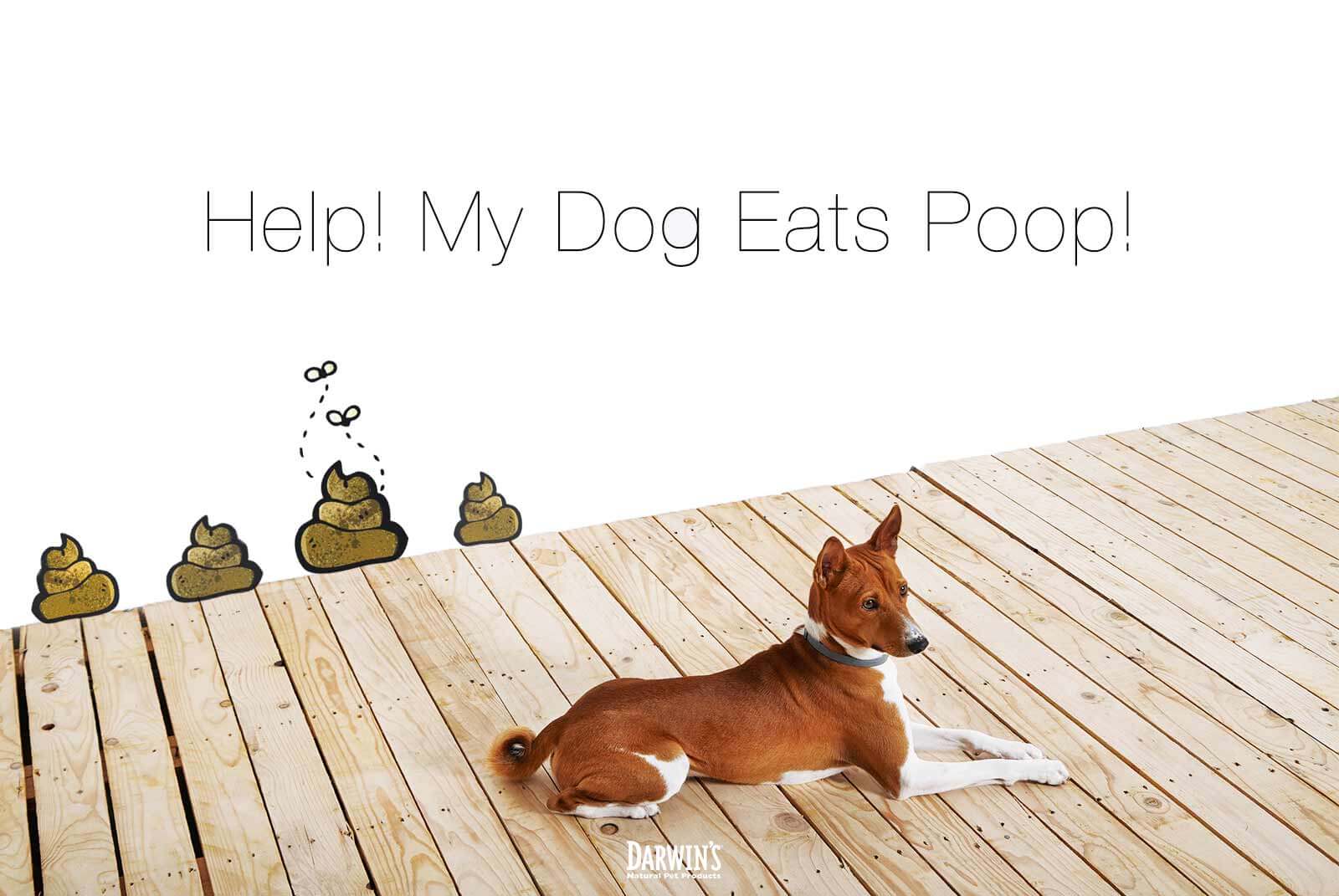Coprophagia: Will A Raw Diet Cure My Dog’s Poop Eating Habit?
10/4/16

Dear Ask Darwin’s,
My Corgi, Leonard, has the disgusting habit of eating poop. He eats the cat’s poop. He’ll pretty much go after any random critter droppings in our yard which backs up to a greenbelt. I’ve gone online and found out it’s called, Coprophagia and have gotten a wide array of contrary information ranging from, “Don’t worry about” to “Get him to the vet immediately”. I would like to hear Darwin’s take on this. Is it serious? I have heard eating a raw diet might help. Is that true?
Thank you,
Jeri G./Bakersfield, VT
Dear Jeri,
Yes, the clinical name for this behavior is Coprophagia. Eating dog or cat poop, while disgusting, in itself is not a risky thing for Leonard to do. Pets that are prone to this behavior usually have inadequate nutrition and are looking for that nutritional boost that is lacking in their diets.
What could help:
Unlike humans, animals’ complex noses don’t smell poop the way we do. They also know what their systems need and simply find a way to fill the gap. A complete, balanced, grain free, fresh food diet with digestive enzymes (raw being one of the best options) will go a long way to curb his need to eat poop — his or the cats.
Cautions:
Having said that, I am not blasé about Leonard nibbling on wild animal leavings. Raccoons, rats, stray cats and even bunnies, etc. can carry a myriad of diseases. I’ll give you an example: My friend’s dog, Scooter stopped eating for a day. The next day blood appeared in his watery stool. She, of course, took him to the vet. After a battery of tests, the vet concluded that poor Scooter had Coccidia. The cause – rabbit poop.
What to look for in a diet:
Moving forward my best advice is to feed your Leonard a species appropriate, robust and balanced diet. I, of course, recommend fresh raw. It has been known to stop Coprophagia and the desire to go from the smelly stuff. And…again, try to keep Leonard away from the wild “gifts” in your yard. It’s also important to know how much to feed your dog, especially when switching to a raw diet, to ensure they're getting the right amount of nutrients.
As always, if any of your pets’ behavior continues to concern you, call your vet.
Hope this helped,
Jeanne

I have been a member of the Darwin’s team since 2009. My passion and growing expertise ranges from being a source authority on Menu Consultations to educating the public at acclaimed events such as The Seattle Kennel, Pet Expo and The Northwest Women’s Show.
Openly believe in all things “green” (except teeth). Love crafting words that make people think and painting dogs and cats. Check out my watercolors at www.artisantails.com or on FB. Passionate about amazing individuals who really are working to cure breast cancer and, of course, sushi. Also the mother of two amazing canines and, in spite of Lucy Van Pelt’s objections, I let my dogs kiss me on the mouth.



